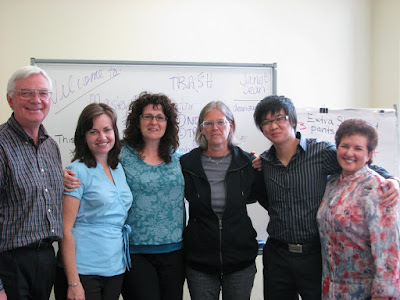The 5 Languages of Apology
Different people require different types of apology to feel that they have been apologized to. Knowing the concept of the 5 languages of apology frees you from expecting the apology language you need, and helps you to understand the type of apology to give. Of course, nothing beats the ring of true sincerity!
"An apology is the superglue of life. It can repair just about anything."
Getting through the Dip
Are you in the dip, a cul de sac or at the edge of a cliff? The Dip is the difference between mediocrity and mastery - and chances are, for anything worth doing, there will probably be a Dip. Finding how to focus and stay on course, will help you turn average into exceptional.
Followership – it’s ok not to want to lead
Your company's success isn't predicated solely on your dazzling leadership skills or even on great leadership plus shrewd hiring. Rather, success is a function of the actions and attitudes of followers. There are five types of followers: isolates, bystanders, participants, activists, and die-hards. Where are you and how do you claim your place and learn your potential influence?
Zenobia: A Tale of Triumph over Yes-People, Cynics, Hedgers and Other Corporate Killjoys. (based on a book of the same name)
What leads an organization to greatness is often very different from what enables it to continue to grow and develop. Zenobia shows us the essence of what it takes for a company to change. Take part in an engaging and actionable tale of how teamwork, courage and vision are integral drivers of long-term success. Be reminded of how enthusiasm, conviction, and courage can transform even the most stubborn personalities or culture. “Look for what could be, not just what is."
Ever wonder why some people say the things they do? Learn about 4 different communication styles and how they shape how we communicate at work. Learn why someone who asks “do I have to?” may not be undermining your authority and why someone who says “of course I can” might actually “not”.
Understanding Ethics
Come learn how what you would do with an unfinished ice cream cone can indicate what you would do in an ethical crisis. We all typically have one of three ethical philosophies – learn what they are, how they are different and how they shape your world view (and how they can sometimes be the root of those unsolvable conflicts).
For more information or to book a lunch and learn for your organization, please call us at 604.521.5473 or email train@actraining.com.



 JanetSpeak Season 2 – 2009
JanetSpeak Season 2 – 2009
























